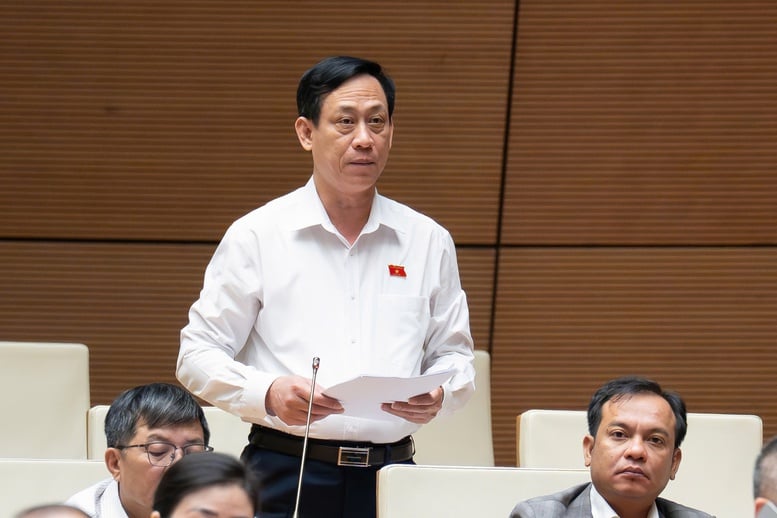
Delegate Mai Van Hai ( Thanh Hoa Delegation) gave his opinion in the discussion.
Continuing the 10th Session, on October 29, the National Assembly discussed the socio -economic situation in 2025. National Assembly deputies highly appreciated the results achieved in 2025, and at the same time proposed many solutions to perfect the 2-level local government model, pay attention to the lives of grassroots officials and increase resources for the commune level, ensuring the apparatus operates effectively and efficiently.
Delegate Mai Van Hai (Thanh Hoa Delegation) commented that in 2025, the country will have many advantages and will also have to face many difficulties and challenges due to the impact of the world and regional situation and natural disasters, storms and floods in the country.
However, thanks to the strong leadership and direction of the Central Committee, the Politburo, the Secretariat, the Government and the consensus of the people and businesses, the socio-economic, defense and security situation in the first 9 months of the year and the whole year 2025 has many outstanding bright spots, with targets reaching and exceeding the plan.
Notably, delegate Mai Van Hai affirmed that the arrangement of the apparatus and implementation of the 2-level local government model is the most comprehensive and profound revolution in the arrangement of the organization of ministries, branches and the implementation of the 2-level local government model.
Although taking place in a short period of time, the Politburo, Secretariat, Government and Prime Minister have directed the implementation very closely, resolutely, flexibly and creatively to streamline the Government's apparatus and implement the two-level local government model.
The results of streamlining the Government apparatus, ministries, branches, departments, branches, merging provinces, merging communes and wards, not organizing at district level and implementing staff reduction have achieved the best results ever. This result has been of interest, supported and highly appreciated by many cadres, party members, voters and people.
After nearly 4 months of operation, the 2-level local government model has basically been operating smoothly. This model focuses on handling administrative procedures for people and businesses, focusing on the task of socio-economic development, ensuring national defense and security at the grassroots level.
In addition to the main results achieved, after being put into operation, the two-level local government apparatus has also revealed a number of difficulties, shortcomings and limitations that need to be overcome. For example, although some places have transferred cadres and civil servants from places with surplus to places with shortage, there is still a situation of local surplus and shortage of cadres, especially in some mountainous communes, border areas, remote areas, where there is a large shortage of cadres but the policies have not been improved.
Delegates recommended that the Government re-evaluate decentralization and delegation of power; promptly determine job positions and appropriate salary mechanisms, and have appropriate remuneration policies so that grassroots cadres can work with peace of mind; promulgate regulations on evaluating cadres based on work results, screen and replace cadres who do not meet requirements; at the same time, invest more heavily in digital transformation at the grassroots level, effectively organize the "Digital Education for All" movement to help people get acquainted with and apply technology in life.
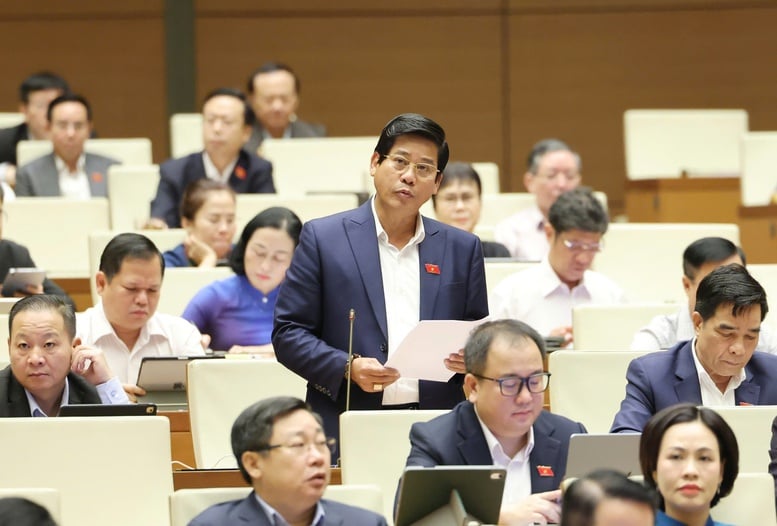
Delegate Duong Van Phuoc (Da Nang Delegation) spoke at the discussion.
Sharing the same view, delegate Duong Van Phuoc (Da Nang Delegation) assessed that the 2021-2025 period was a very successful term with many outstanding, superior and comprehensive results. We have overcome unprecedented challenges and achieved very important feats, creating a solid foundation for growth momentum in the new development period.
The National Assembly, people and voters are very excited, confident and supportive of the Party's new policies, especially the implementation of the two-level local government model.
However, the delegates also pointed out that the new model raises many issues that need to be resolved. The Government needs to soon issue missing guidance documents, amend overlapping regulations, and clearly decentralize and delegate power to ensure local initiative and flexibility.
He also proposed investing in synchronous information technology infrastructure, especially in remote and island areas; building job positions, minimum staffing frameworks and appropriate salary mechanisms to attract and retain staff.
In particular, delegate Duong Van Phuoc emphasized that the success of the new model depends largely on the close coordination between a synchronous legal system and a team of competent and responsible staff, and modern technical and technological infrastructure, based on a new management thinking platform.
Therefore, it is necessary to strongly shift the mindset from administrative management to state management. This is not simply a change in terminology but a revolution in thinking, culture and institutions. This also requires the central leading role of the leader in the new model, forcing them to be architects, chief architects, coordinators and servants for the development of the country, for the happiness of the people.
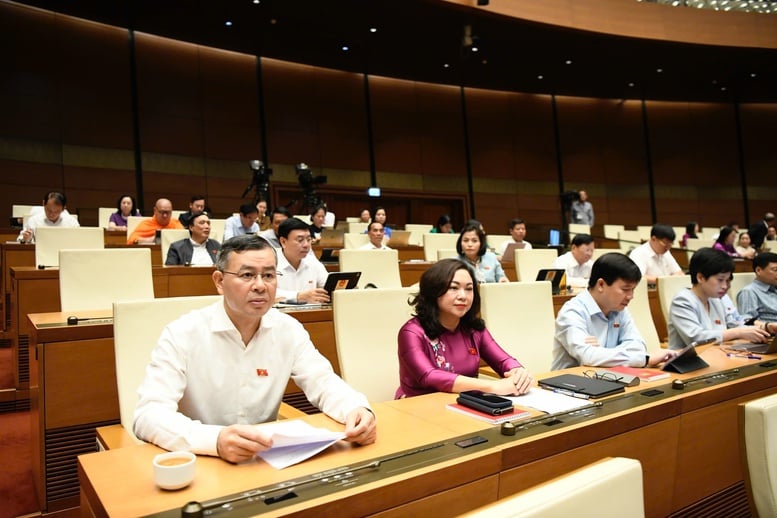
The National Assembly discussed the socio-economic situation in 2025.
Proposal to adjust salary policy to ensure the lives of grassroots cadres
From the reality of operating the 2-level government model, delegate Tran Quoc Tuan (Vinh Long delegation) reflected that after merging administrative units, the apparatus is lighter in terms of focal points but heavier in terms of work. Grassroots cadres have to do more work, travel further but their income does not increase, making life difficult.
According to the summary report of voters' petitions sent to this session, voters in many localities reflected that after the administrative unit merger, many commune officials had to travel further, in some places from 10 to 15 km to reach the new headquarters. Meanwhile, travel allowances and public service allowances have not been adjusted.
In addition, some provinces in the Mekong Delta also reported that grassroots cadres are shouldering many tasks due to staff reduction. However, their income has not improved, affecting their mentality, motivation and work efficiency.
The delegates said that these reflections are not just numbers or technical recommendations but the voice of the grassroots civil servants and public employees. The current basic salary of 2.34 million VND/month is no longer suitable for the cost of living.
From that reality, delegates earnestly requested the National Assembly and the Government to consider adjusting the basic salary increase from May 1, 2026, earlier than usual, "not just a story about salary but the common heartbeat of the apparatus that needs to be invigorated".
Delegate Dang Thi My Huong (Ninh Thuan Delegation) said that the process of restructuring the apparatus has achieved many results, but resources for the commune level are still limited. After the merger, the scope of management is wider, the workload has increased, while there is a lack of staff with expertise in finance, land, science, and construction.
Delegates proposed 4 groups of solutions: Building a team of capable and stable grassroots cadres, with policies to attract, train and foster cadres in difficult areas.
Allocate resources reasonably, in line with assigned functions and tasks; ensure "resources go where the task goes".
Promote digital transformation at the commune level, form a digital government close to the people, invest in databases and unified management software.
Perfecting the decentralization and delegation of powers clearly and transparently, defining responsibilities and power control mechanisms to avoid abuse of power and violations.
"The arrangement and completion of the state apparatus is an inevitable process to better serve the people. Investing resources at the commune level is investing in the sustainable operation of the two-level government and the people's trust in the Party and the State. Therefore, it is necessary to focus on reviewing and perfecting the institutions, ensuring resources so that the two-level government model can operate effectively and serve the people better," said delegate Dang Thi My Huong.
Thu Giang
Source: https://baochinhphu.vn/dbqh-kien-nghi-hoan-thien-chinh-quyen-dia-phuong-2-cap-cai-thien-tien-luong-thu-nhap-can-bo-102251029143442935.htm


![[Photo] Hue: Inside the kitchen that donates thousands of meals a day to people in flooded areas](https://vphoto.vietnam.vn/thumb/1200x675/vietnam/resource/IMAGE/2025/10/29/1761738508516_bepcomhue-jpg.webp)

![[Photo] Prime Minister Pham Minh Chinh chaired a meeting to evaluate the operation of the two-level local government model.](https://vphoto.vietnam.vn/thumb/1200x675/vietnam/resource/IMAGE/2025/10/29/1761751710674_dsc-7999-jpg.webp)
![[Photo] Prime Minister Pham Minh Chinh chaired a meeting to discuss solutions to overcome the consequences of floods in the central provinces.](https://vphoto.vietnam.vn/thumb/1200x675/vietnam/resource/IMAGE/2025/10/29/1761716305524_dsc-7735-jpg.webp)
![[Photo] Human love in the flood in Hue](https://vphoto.vietnam.vn/thumb/1200x675/vietnam/resource/IMAGE/2025/10/29/1761740905727_4125427122470875256-2-jpg.webp)

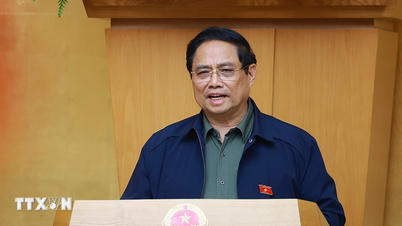

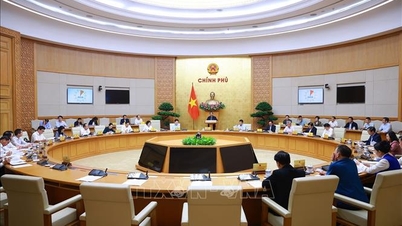

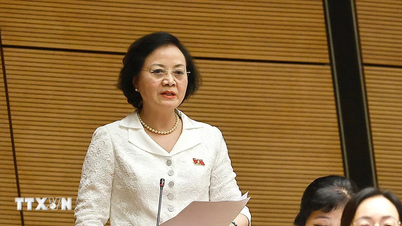
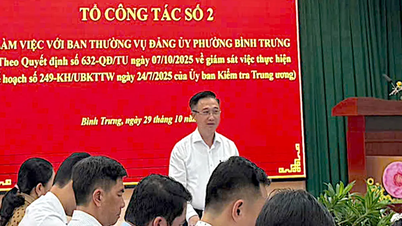

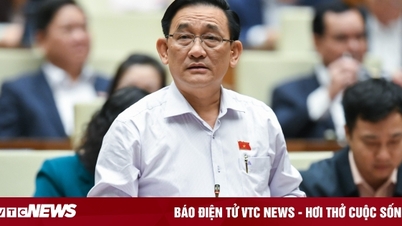

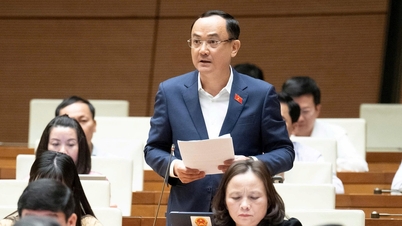


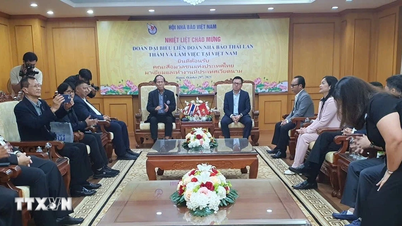



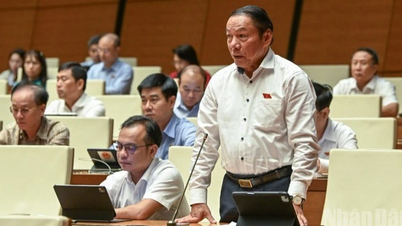

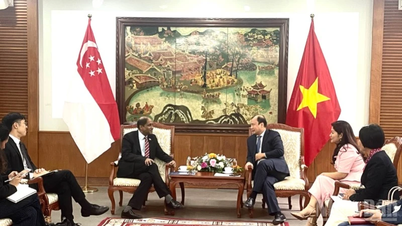




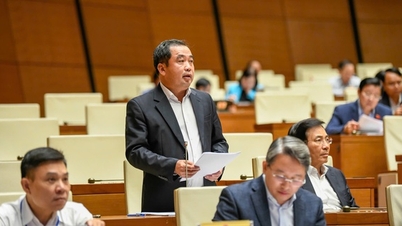
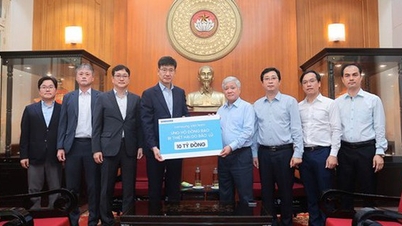

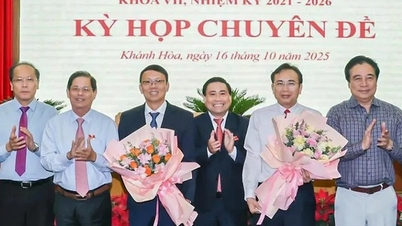





































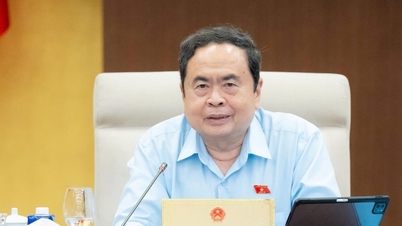

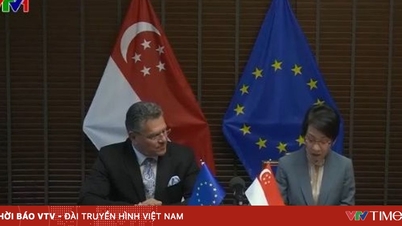
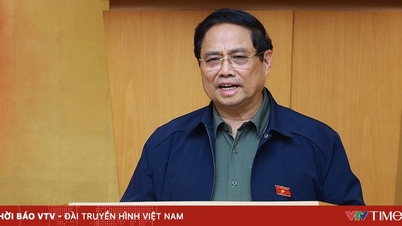
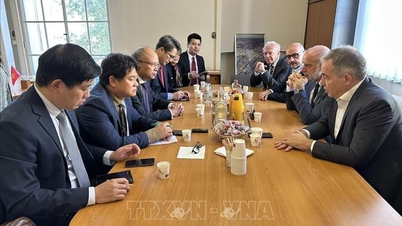
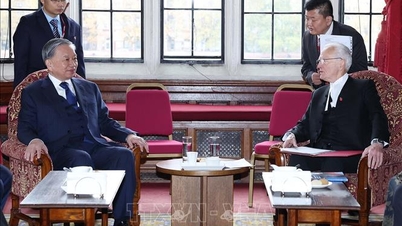
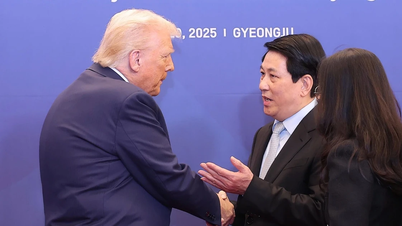


![[Live] Concert Ha Long 2025: "Heritage Spirit - Brightening the Future"](https://vphoto.vietnam.vn/thumb/402x226/vietnam/resource/IMAGE/2025/10/29/1761743605124_g-anh-sang-am-thanh-hoanh-trang-cua-chuong-trinh-mang-den-trai-nghiem-dang-nho-cho-du-khach-22450328-17617424836781829598445-93-0-733-1024-crop-1761742492749383512980.jpeg)



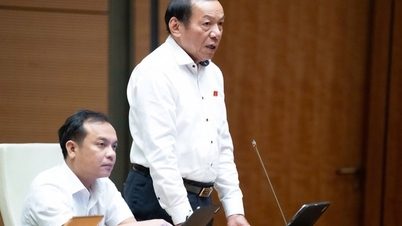
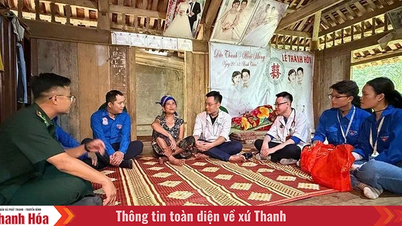






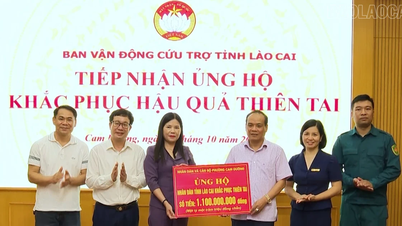

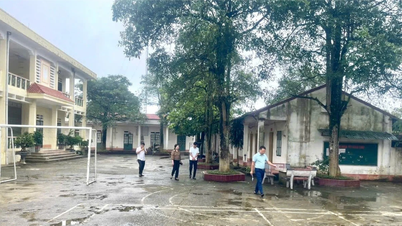















Comment (0)